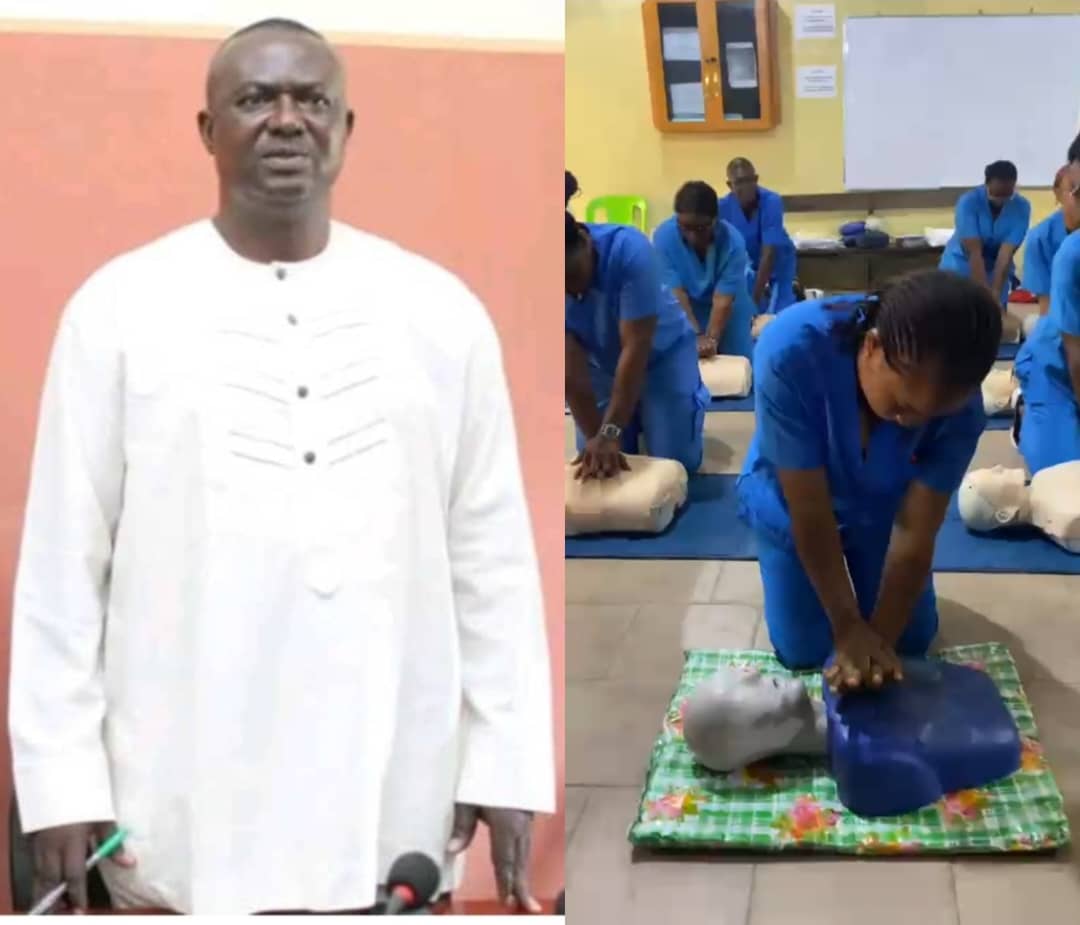Antimicrobial resistance (AMR) remains a global health crisis that threatens to undo decades of progress in medicine. In Nigeria, as in many other countries, the misuse and overuse of antibiotics are fueling the rise of drug-resistant bacteria.
Recognising the serious implications for human health, animal health, and the environment, experts say to effectively combat AMR, a One Health approach is essential to minimise the spread of drug-resistant bacteria and protect public health.
According to them, the approach recognises the interconnectedness of human health, animal health, and environmental health.
They posited that AMR pandemic was bigger than the big three of malaria, HIV and Tuberculosis as in 2019, AMR was directly responsible for 1.27 million deaths and contributed to 4.95 million deaths globally. 1 in 5 of those deaths were among under 5. Sadly, sub Saharan Africa has the highest number of deaths.
In 2021, an estimated 4.71 million deaths were associated with bacterial AMR, including 1·14 million deaths attributable to bacterial AMR in the sub region. According them, AMR has become one of the most urgent health challenges globally, and Nigeria is stepping up its efforts to address it.
At a recent session marking AMR Awareness Week, and organised by the National Agency for Food and Drug Administration and Control, NAFDAC, key stakeholders in Nigeria’s health, agriculture, and veterinary sectors discussed the critical need for coordinated action to combat AMR, which poses significant threats to both human and animal health.
Speaking on the rising threat of AMR in Nigeria, the Director-General of the National Agency for Food and Drug Administration and Control (NAFDAC), Prof. Christianah Adeyeye, highlighted the gravity of the AMR crisis in Nigeria, emphasising that AMR occurs when bacteria become resistant to antibiotics, making infections harder to treat.
“One of the major drivers of AMR in Nigeria is the inappropriate use of antibiotics in animal feeds.”
Some farmers, she noted, are using antibiotics like tetracycline and oxytetracycline in livestock and fish feeds to promote growth, which can contribute to resistance in humans when consumed.
She emphasised that AMR, which makes common infections and medical procedures increasingly difficult or impossible to treat, is already impacting lives worldwide and poses a dire risk to public health, agriculture, and the environment.
“AMR is not a distant threat. It is already impacting our lives, and the most pressing danger is the resistance found at birth in newborn babies. The implications for the human race are unquantifiable, as AMR threatens not only humans but also animals and plants.”
She said: “NAFDAC has been actively educating farmers and veterinarians about the dangers of using antibiotics unnecessarily in agriculture. The agency has been pushing for alternatives to antibiotics in animal feed and promoting responsible practices for both medical and veterinary professionals.”
Earlier in her speech at the opening of the 2024 World Antimicrobial Awareness Week (WAAW), themed “Educate, Advocate, Act Now”, Adeyeye highlighted the increasing global threat posed by AMR often referred to as the “Silent Pandemic.”
Adeyeye also mentioned that there is a critical lack of national data on AMR in Nigeria, which makes it difficult to assess the full scale of the problem.
However, she said hospital data suggests that even newborns in Nigerian teaching hospitals are contracting resistant infections, with some dying due to ineffective treatments.
The Director-General stressed the importance of collaboration across various sectors-healthcare professionals, pharmacists, veterinarians, and farmer in addressing this issue.
Adeyeye underscored the importance of completing antibiotic courses as prescribed and warned against purchasing antibiotics from unlicensed sources.
She also reminded Nigerians about the risks of consuming animals treated with antibiotics without proper withdrawal periods, which could further contribute to the AMR crisis.
Adeyeye outlined several key regulatory measures NAFDAC has implemented to combat AMR in Nigeria. These include restrictions on the formulation of antibiotics, a ban on using antibiotics as growth promoters in livestock, and prohibitions on the use of certain antibiotics in animal feed among others.
Speaking, a representative from Denmark, Jens Ole Bach Hansen, who shared the country’s long-standing efforts to curb AMR, dating back to 1995, highlighted the importance of international collaboration, noting that while countries like Denmark and Nigeria have made strides, bacteria that are resistant to antibiotics do not recognise borders, making the problem truly global.
An AMR Focal Person, Nigeria Centre for Diseases Control, NCDC, Dr Yamaha Ridwan, also outlined the economic and health implications of AMR, he warned that by 2050, AMR could cause global losses of up to $100 billion in agricultural production alone. “In Nigeria, this could severely affect the agricultural and food sectors, with risks to both food security and export potential.”
He noted that Nigeria has been an active participant in the global fight against AMR since 2012.
Ridwan presented the second iteration of Nigeria’s National Action Plan on AMR, which is set to be implemented from 2024 to 2028. The first action plan, launched in 2017, was reviewed and updated based on a thorough situation analysis. The new plan aims to improve surveillance, infection prevention, and control, with a special focus on research and the development of alternative treatments. A significant aspect of Nigeria’s strategy is strengthening antimicrobial stewardship.”
Ridwan explained that stewardship involves the responsible management of antibiotics to ensure they are used only when necessary, and in the correct doses and duration.
He also stressed that proper stewardship practices will help reduce the spread of resistant infections and safeguard the effectiveness of existing antibiotics.
He said Nigeria is implementing the National AMR Governance Manual and has allocated significant resources for its execution.
Ridwan also mentioned that the government is working closely with international partners, including Denmark, to share knowledge and best practices in the fight against AMR.
Nigeria is intensifying its efforts to combat AMR through awareness campaigns, stronger regulations, and enhanced cooperation across sectors. The country’s national action plan, coupled with global partnerships and the collective will to act now, offers hope in the fight against antimicrobial resistance.
Also speaking, WHO AFRO representative, Kapona Otridah highlighted the importance of coordinated efforts among various sectors-healthcare, agriculture, and the environment in tackling AMR.
With an action plan in place, Nigeria is committed to meeting global AMR targets, including reducing AMR-related deaths by 10 per cent and ensuring the appropriate use of antibiotics in human health.
The government is also working to meet WHO benchmarks for infection prevention and control (IPC) in healthcare facilities and to ensure better access to quality antibiotics for all Nigerians.
SOURCE: VANGUARD NEWSPAPER




